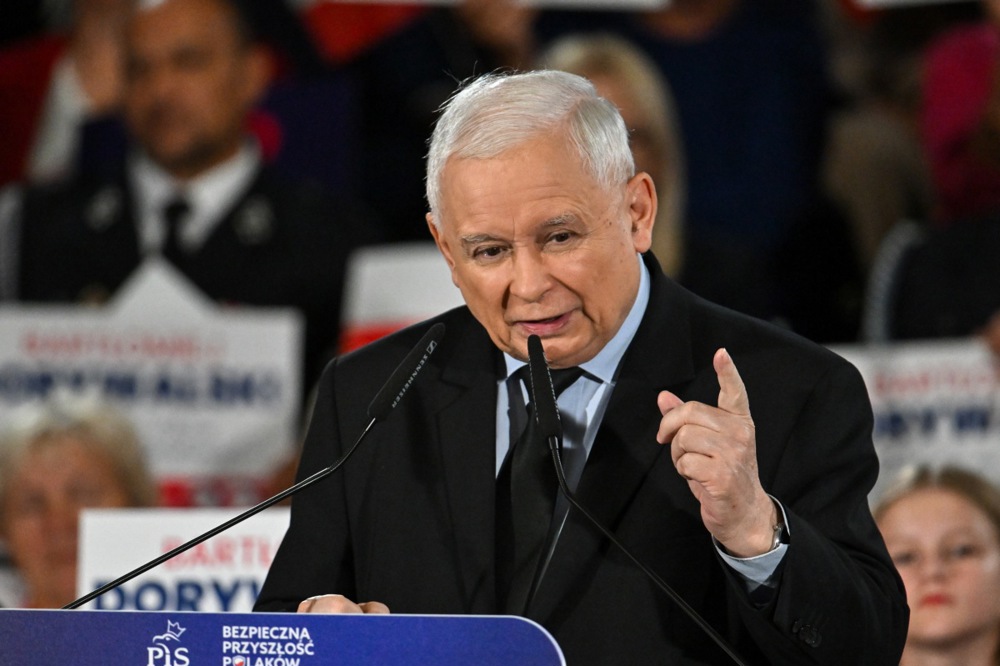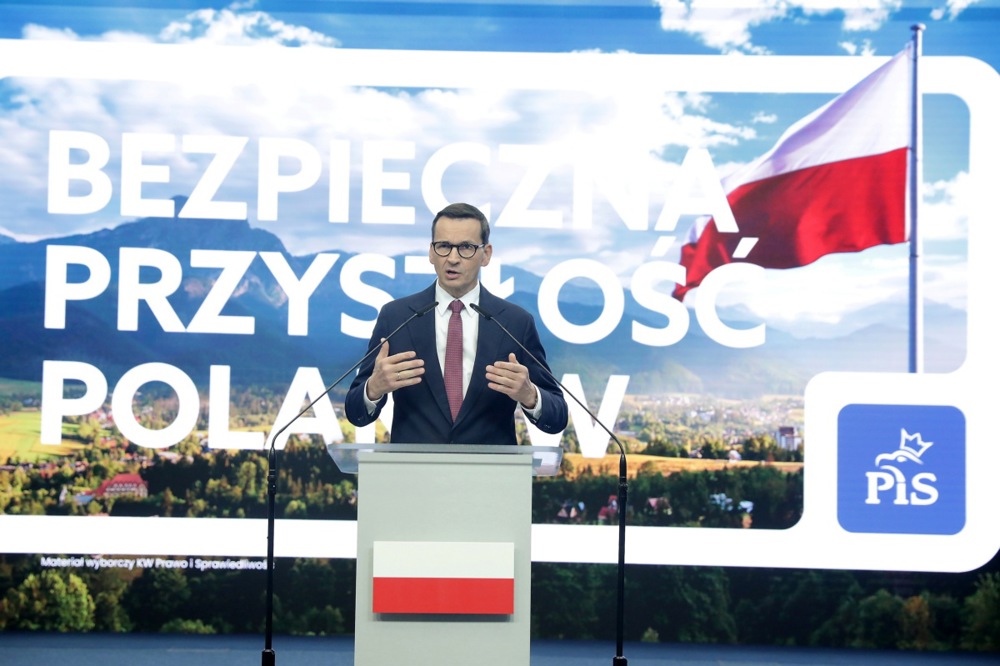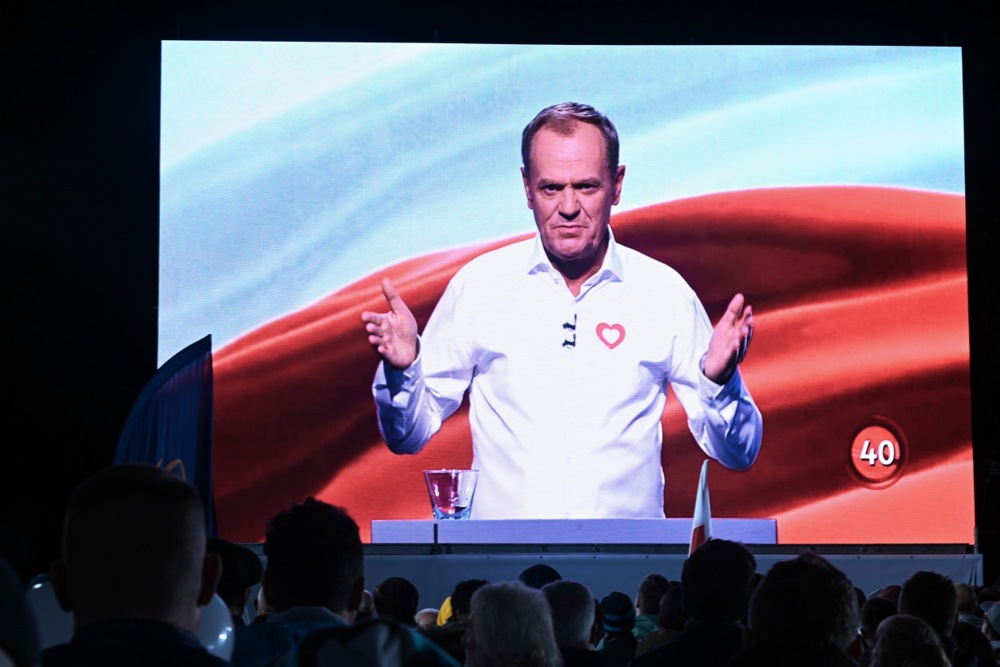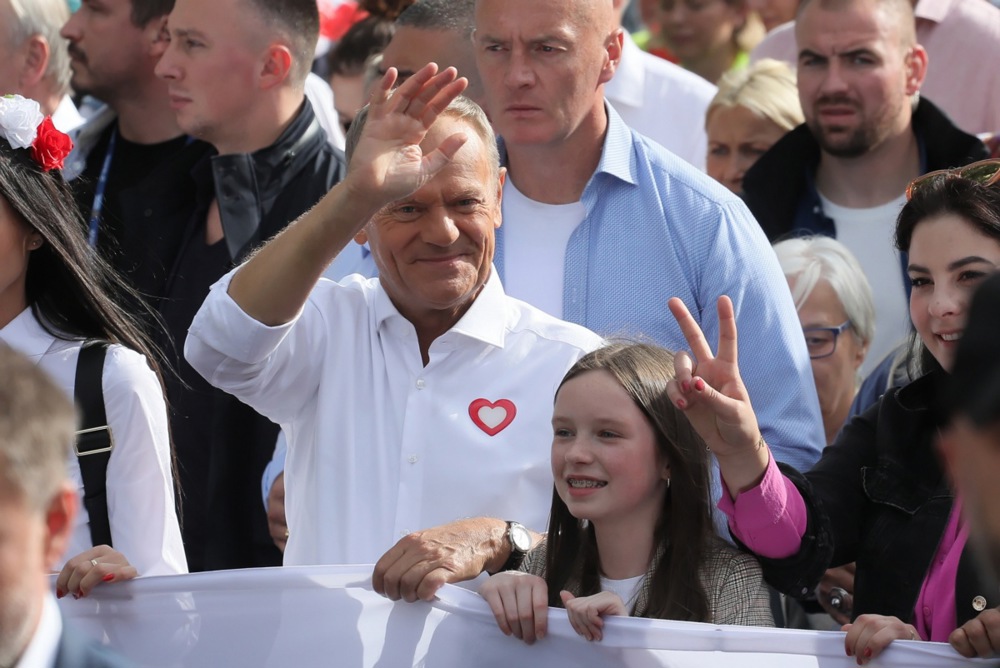The leader of Poland’s outgoing ruling Conservatives (PiS), Jarosław Kaczyński, has admitted to supporters that his party has failed to obtain a majority in parliament and will probably have to leave office.
He said that failure was due to errors made during the election campaign alongside what he called “social change” that had made people more susceptible to “foreign influence and Liberal media”.
On October 20, in his first public appearance since election night on October 15, Kaczyński addressed a gathering of Conservative weekly Gazeta Polska readers in central Poland.
Kaczyński admitted that the election result meant that it was likely his party would have to relinquish power as the opposition now had a majority in both chambers of parliament.
He said that was in part due to “a number of mistakes” made by PiS, which has been in power for eight years, but he did not elaborate on what those mistakes were.
Media expert Daniel Pers told portal Onet.pl that PiS hired Hungarian PR consultants responsible for Viktor Orban’s successful re-election campaign last year. They advised PiS to pursue a strategy of polarisation in confrontation with the main opposition party and its leader Donald Tusk. They also advised PiS to hold a referendum to energise its core vote on the most salient issues to accentuate that divide.
That failed to take account of the fact that, unlike the Fidesz party in Hungary, PiS was facing four and not one opposition group. In just targeting one rival, admittedly its largest, it meant those voters who did not identify with the tactic backed other opposition parties, Pers said.
Marcin Mastalerek, the new head of Polish President Andrzej Duda’s Chancellery, or executive office, seemed to agree with this analysis. He told commercial radio the PiS campaign was “seriously flawed” and when asked whether it was time for Kaczyński, the 74-year-old who founded and leads the party, to retire he said “yes” without hesitation.
Kaczyński, who has no plans to retire any time soon, argued that the bigger issue was that “Poland has changed, the structure of the electorate has changed,” and PiS must adapt to that if it hoped to “win again in a Poland different than it was some time ago”.
The PiS leader was referring to the fact that, to many, Polish society appears to be becoming more secular, affluent and cosmopolitan. That has caused Poles to move away from the more traditionally family-unit based Polish society.
Kaczyński said he felt another reason for the defeat may lie in Poles having become more susceptible to “external influence.”
“There are forces at work here all the time that are clearly related to our neighbours, and I am not talking about the Czechs or Slovaks, only about the Germans and Russians,” he claimed.
He claimed that the largest opposition party, the Tusk-ed Civic Platform (PO), acted “in line with German interests” and that Germany was the “source of its creation”. That was an allusion to the fact that in the 1990s the Liberal party in Poland that Tusk headed then received funding from Germany.
Tusk later turned to Poland 2050, a party formed by TV presenter-turned-politician Szymon Hołownia in the wake of his third-place finish in the 2020 presidential elections. That party was part of the Third Way coalition that came third in the parliamentary elections this month.
“Was the creation of Poland 2050 the result of a certain TV presenter coming up with such an idea?” pondered Kaczyński.
“Or maybe something deeper? I think that the reasons are deeper and that it is the other side [Russia] looking for some kind of reliable tool and still hoping that the currently established political system, which does not suit it, could be made to become what Moscow believes it should be,” he continued.
Kaczyński did not provide any evidence for that but mentioned “generals” as being influential in the new party, which was likely a reference to General Mirosław Różański, one of Poland 2050’s newly elected senators. He began his military career in Communist times and was accused by former defence minister in the PiS government (2015-2017) Antoni Macierewicz of favouring Russian interests.
The PiS leader also pointed to the extensive coverage by Polish media, which is partly foreign owned and hostile to PiS – such as Onet.pl and Gazeta Wyborcza, given to a scandal involving was claimed was the mass irregular issuance of Schengen visas. In fact, he said, the number of the “dodgy” visas handed out was found to be only 280. He claimed the whole issue also contributed to the election defeat.
An exit-poll examination by Polish Nationwide Research Group (OGB) of around 90,000 voters on October 15 found they saw inflation, the tightening of abortion law and national security as the key issues rather than migration.
Kaczyński acknowledged to his supporters in the Conservative media that PiS would lose its influence over public media and claimed that therefore many journalists will lose their jobs and be replaced by those more sympathetic to the new government.
He called for the creation of a large Conservative media network to enable journalists who will be released from public media to find alternative employment. He did not specify where the resources for that would come from given advertising from large public companies is likely to dry up when the new government is in place.
In Poland all but one of the national daily newspapers are Liberal as are the largest weekly magazines and digital news outlets.
Those organisations all receive foreign investment from Germany and other west European countries as well as US funds.
A classic example is the George Soros media fund, which has invested in Agora, the media company that owns the influential daily Gazeta Wyborcza and has recently acquired a major shareholding in the daily Rzeczpospolita, radio station RadioZet and a small investment in one of Poland’s biggest portals WP.pl.
The few Conservative television and radio outlets that exist are much smaller in terms of both outreach and budget and are no match for the public media and the two major commercial networks.
The PiS leader’s faith in the work of public-media journalists is not shared by Marcin Wolski, one of the best-known of state-broadcaster TVP’s commentators and managers. He told a meeting of the discussion forum Ronin Club that TVP had created “worse propaganda than in the 1970s [Communist times]”.
Wolski added that such propaganda was a “waste of time and money” because it was “preaching to the converted” who were already going to vote for PiS. He also criticised TVP for its attacks on and exclusion of the Confederation party, which could have stopped the three Centre, Liberal and Left parties gaining a majority in parliament had it done better in the polls .
In the October 15 election, PiS won 35 per cent of the vote and took 194 seats in the 460 member Lower House of Parliament (Sejm). The Confederation party took 7 per cent and won 18 seats. The majority in the new parliament is made up of the party led by Tusk, Third Way and the Left which together now hold 248 seats.





